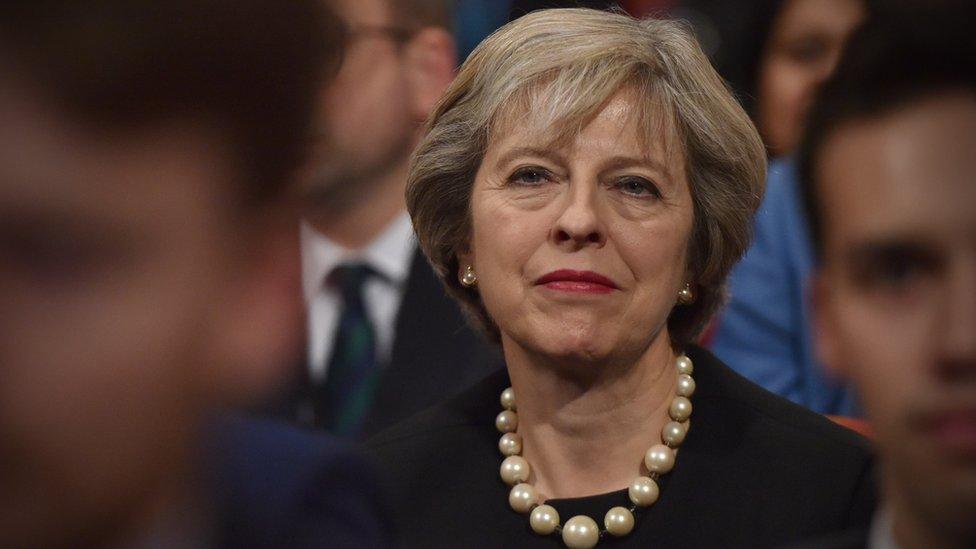Prime Minister says no UK region can opt out of Brexit
- Published

Theresa May has said no UK region can 'opt out' when Britain leaves the EU in 2019
Theresa May might have had the Scottish National Party first and foremost in her thoughts when she told Conservative activists there would be "no opt out" of Brexit for any region of the UK.
But the message applied equally to those Remain voters in Northern Ireland who have been thinking fondly about the idea of retaining some kind of special status within the EU.
The PM's scornful attitude to the legal challenges against Brexit pertained as much to the cases before Belfast's High Court as to those launched in London.
She repeated her pledge to engage the devolved administrations fully in the Brexit process.
But Northern Ireland Deputy First Minister Martin McGuinness revealed that, in practice, this boiled down to a phone call from the EU Exit Secretary David Davis telling Stormont about the plan to legislate to repeal EU legislation shortly before that plan was revealed to the public.
Stormont's first and deputy first ministers managed to find some common ground by penning a joint letter to the prime minister setting out their Brexit concerns.
'Hard border'
First Minister Arlene Foster told MLAs that letter has not yet received any response from Downing Street, although Mrs May's latest speech may be considered the clearest reply so far.
Mrs Foster acknowledged that an Alliance query about the repercussions of the UK withdrawing from the single market was "a core question".
But she declined to say how she believes that might "impact on business in Northern Ireland, given the degree to which we trade with the Republic of Ireland", taking refuge in not wanting to give away Stormont's negotiating hand.
The thrust of Mrs May's speech appears to be that controlling immigration trumps staying in the Single Market.
If that remains the case, the room for compromise on potential immigration and customs checks on the Irish border appears to have diminished. No wonder the Irish Foreign Minister Charlie Flanagan seems to no longer be ruling out the possibility of a so-called hard border, even if Mrs Foster derides it as a Donald Trump-style wall which will never be built.
Many of the Stormont Remain politicians are reluctant to accept that Brexit is a done deal, as they continue to hope it can be derailed by their court challenges or some other unforeseen event. But the clock is ticking, and the likely consequences on the border are very real.
The politicians are saying radically different things about Brexit but the public in Northern Ireland deserves both its Leave and Remain representatives to start thinking seriously about the practicalities.
For all London's promises of engaging the devolved administrations, Stormont will have to shout loud and often if its concerns are going to get heard amid the cacophony of the negotiations between the UK and the EU.